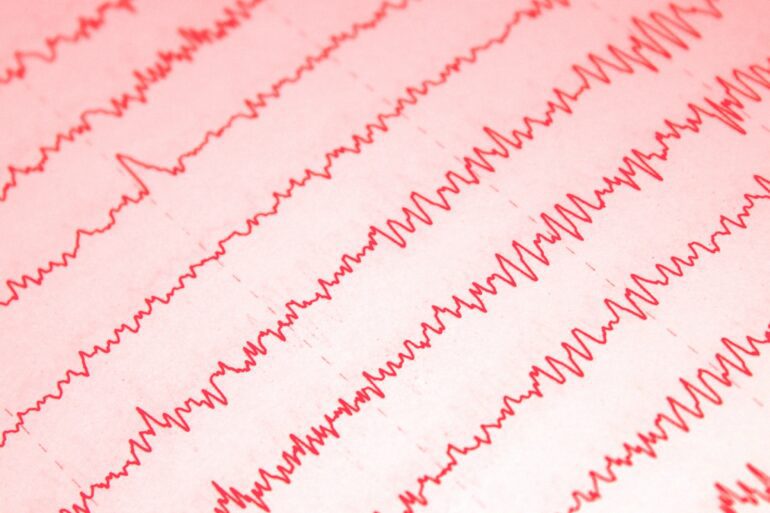TL;DR:
- Artificial intelligence (AI) has the potential to accurately predict an individual’s risk for a cardiac event.
- Researchers from Johns Hopkins University developed a 10-year survival model using AI.
- The model considers imaging data, age, race, and risk factors like diabetes and blood pressure.
- The new capabilities offer personalized risk prediction, giving hope to doctors and patients.
- Patients like Paula Harris believe the technology could have saved them from cardiac events.
- Sudden cardiac events are often deadly, accounting for 20% of global deaths.
Main AI News:
In a groundbreaking development, artificial intelligence (AI) has emerged as a powerful tool that could potentially save countless lives by accurately predicting an individual’s risk for a cardiac event. This cutting-edge capability surpasses the abilities of even the most skilled doctors, offering a glimpse into a future where medical outcomes are transformed by advanced technology.
A team of researchers from the esteemed Johns Hopkins University has harnessed the potential of AI to create a robust survival model for patients. Spanning a decade-long period, this remarkable model incorporates a sophisticated prediction mechanism to determine the precise timing when a person is most susceptible to a cardiac event. The implications of this breakthrough are profound, heralding a new era of personalized healthcare.
Dr. Venkat Polsani, an eminent authority in cardiovascular MRI and CT at Piedmont Healthcare in Atlanta, expresses his optimism regarding these unprecedented capabilities. He underscores the profound impact that individualized risk prediction can have on patients’ lives, emphasizing that such knowledge can make an enormous difference in their healthcare journeys. The newfound ability to predict cardiac events with precision empowers medical professionals to intervene proactively and implement preventive measures before it’s too late.
At the core of the patient survival model lies an amalgamation of crucial data. This includes comprehensive imaging data of the patient’s heart, along with variables such as age and race. Additionally, the model takes into account vital risk factors like diabetes and blood pressure, enabling a holistic assessment of an individual’s cardiac health. By integrating these multifaceted aspects, the AI-powered survival model provides a comprehensive understanding of the patient’s unique situation, further enhancing the accuracy of risk prediction.
Paula Harris, a patient at Piedmont Heart, vividly illustrates the potential impact of this groundbreaking technology. Reflecting on her personal experience, Harris believes that she could have greatly benefited from this innovative approach. Having suffered a heart attack in February 2021, she expresses her longing for the existence of this life-saving technology in the past. Harris’s poignant testimony serves as a stark reminder that even individuals who maintain a healthy lifestyle can be blindsided by sudden cardiac events. This reality highlights the urgent need for advanced predictive tools that can identify hidden risks and intervene before tragedy strikes.
The prevalence of stories like Harris’s is deeply disconcerting, often culminating in heart-wrenching outcomes. Shockingly, nearly 90 percent of sudden cardiac events prove fatal, contributing to approximately 20 percent of global deaths. These alarming statistics underscore the critical importance of breakthroughs in predictive medicine. Through the fusion of AI and medical expertise, we can aspire to a future where lives are saved and the devastating impact of cardiac events is mitigated.
As the realm of healthcare continues to be transformed by technological advancements, the potential of AI in cardiac event prediction stands as a testament to the remarkable possibilities that lie ahead. With every milestone achieved, we move closer to a future where lives are safeguarded and personalized care takes center stage. The collaboration between brilliant minds and cutting-edge technology will undoubtedly pave the way for a healthier tomorrow, where the prevention of cardiac events becomes an achievable reality for all.
Conlcusion:
The emergence of artificial intelligence (AI) as a powerful tool for accurately predicting an individual’s risk for a cardiac event holds significant implications for the market. This innovative technology opens up new avenues for personalized healthcare and preventive measures. By leveraging AI-driven survival models, healthcare providers can enhance patient care, intervene proactively, and potentially save lives.
This transformative capability has the potential to drive demand for AI-based predictive analytics solutions in the healthcare industry, fostering advancements in personalized medicine and improving patient outcomes. As the market embraces these cutting-edge technologies, we can anticipate a paradigm shift in cardiac event prevention and a heightened focus on leveraging AI to optimize patient care strategies.

